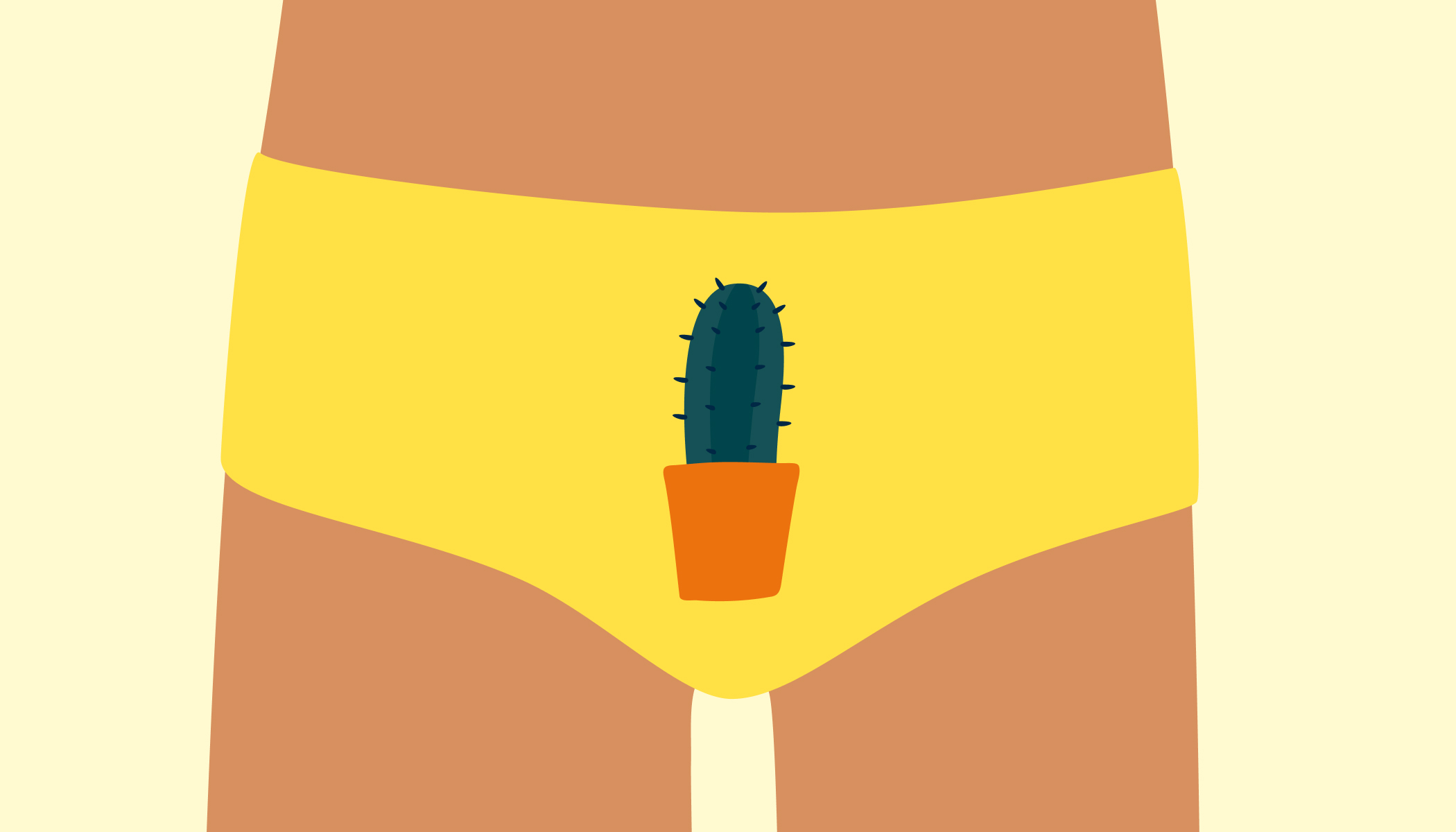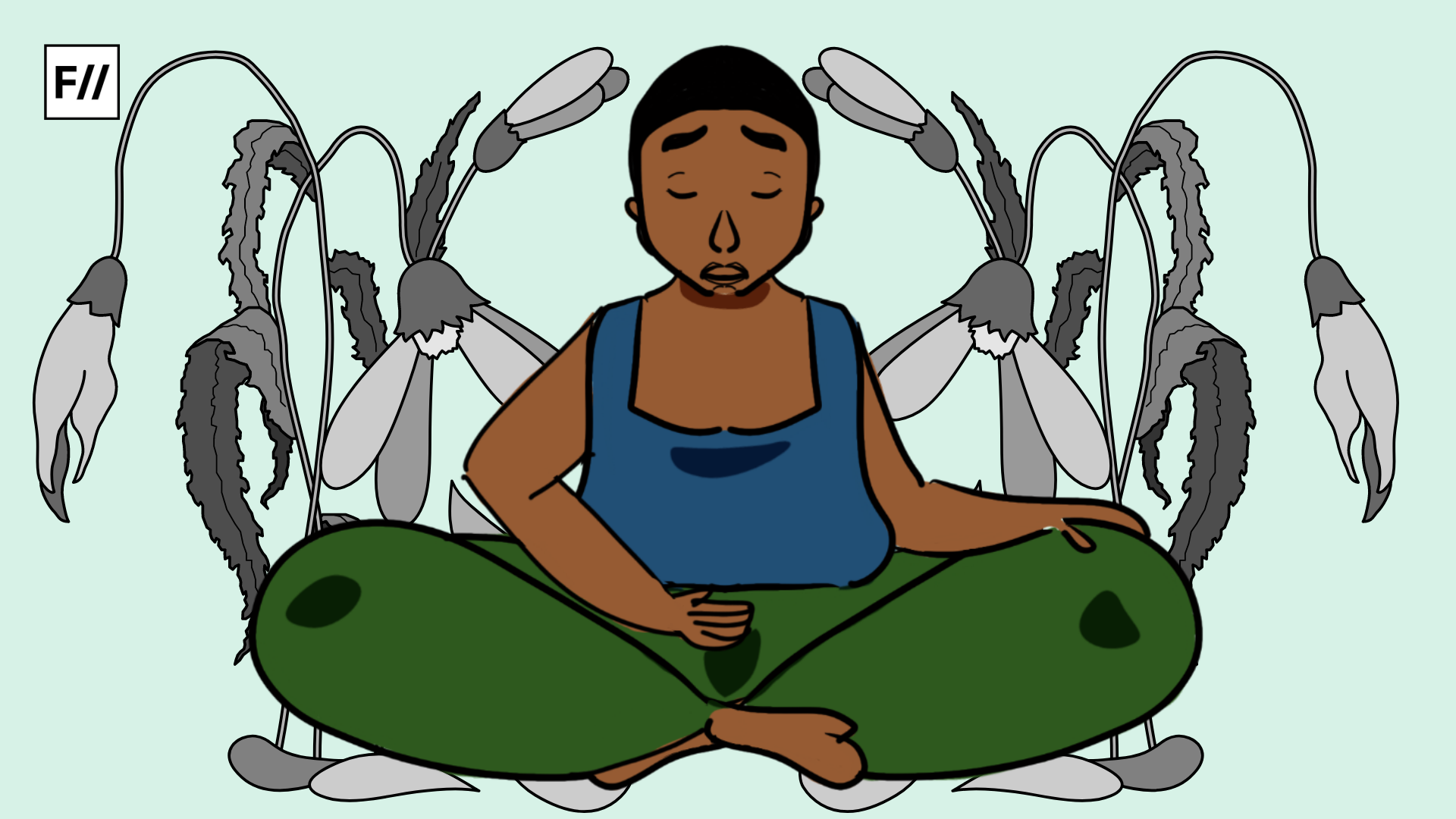Amongst the many other gynaecological issues women and individuals with vaginas face, a common one is vaginal dryness. Almost every person with a vagina goes through vaginal dryness at some point in their life. Vaginal dryness is a painful symptom that many people may experience at some point during their lives. This symptom can be caused by a decrease in hormone levels, breastfeeding or certain medications. The reason, as well as the symptoms for this condition, vary from person to person.
However, despite this condition being so common, it is hardly discussed. For many, vaginal dryness becomes a condition that affects their daily life. It is most apparent when menopause hits and suddenly, sexual intercourses become a complicated hurdle. It is also known to be a reason behind the loss of sexual intimacy in middle-aged women. Yet, vaginal dryness mostly goes unnoticed and untreated.

What are the symptoms of vaginal dryness?
Vaginal dryness mostly starts with a feeling of soreness or itching around the vagina. Symptoms for this condition may be different for different people. However, a constant burn in the vagina might be a starting signal for it.
Urinating in this condition becomes difficult as the urinary tract often swells up and causes discomfort. Urinary Tract Infections (UTI) and yeast infections become recurrent during this time. The frequency of urination is more often than usual as the bladder keeps trying to push out the infections. If left untreated for too long, urinating can also turn out to be painful in some cases.
Besides these, vaginal sex becomes a stressful experience for most people with vaginal dryness. Vaginal dryness can make you not want to have sex due to discomfort. A lot of times, there could be bleeding after sex. This happens because the tissues in the vaginal wall break during sex due to reduced moisture.
Dryness in the vagina also leads to the vulva becoming dry and sore. As a result, putting on underwear or doing regular activities like sitting, walking, running or squatting can also be uncomfortable.
Causes of vaginal dryness, medication, treatment
Vaginal dryness is majorly caused due to a drastic change in hormone levels. Often during menopause or irregularities in the menstrual cycle, estrogen levels decrease rapidly. As a result, the tissues and skin surrounding the vulva start thinning. They lose their elasticity which consequently increases dryness in the vagina.
Vaginal dryness is also caused due to certain other health conditions and medications. Breastfeeding after childbirth lowers estrogen levels and causes tightness in the vagina. This is common during the post-partum period when the female hormones are usually less. Hormone-controlling pills like birth control pills, contraceptives, anti-depressants, anti-histamines, etc., also decrease estrogen levels.
Oophorectomy or the removal of ovaries, which consequently ceases the usual estrogen production in the body also contributes to vaginal dryness. Cancer treatments like chemotherapy, hormone therapy, as well as autoimmune disorders like Sjogren’s syndrome induce dryness in the body. Diabetes can also damage vaginal blood vessels and decrease lubrication, rendering the vagina dry.

Diagnosis of vaginal dryness is usually done through blood tests that help in determining the hormone levels. Doctors may also take a sample of the vaginal discharge to test for infections or symptoms of any other disease. In some cases, a pelvic exam may also be performed to check the inner walls of the vagina. It helps in determining whether the interior is too dry or red.
Most people usually try treating this condition with home remedies and self-care. The most important thing to remember is that anybody undergoing vaginal dryness should not use perfumed soaps, washes, or moisturisers on the genitals. It is best to apply unperfumed, natural products and keep the vagina clean. If sex becomes a serious issue, water-based lubricants often help through the process.
If in case the condition does not respond to any of these home treatments, it is best to consult a healthcare provider. There are many treatments and medications available that easily treat vaginal dryness. Doctors often prescribe low-dose estrogen cream, rings, or tablets. Special lubricants and moisturisers for the vagina are also available that help to keep the vaginal lining healthy and moisturised.

Breaking the stigma around vaginal dryness
Vaginal dryness can bring a major shift in life as it directly affects an individual’s well-being. The condition is known to be reported by about 17 percent of people assigned female at birth, most of them belonging to the 18 to 50 age group.
Despite these numbers, vaginal dryness is mostly talked about in hushed voices even within family spaces. A major reason behind this is patriarchal medical knowledge mostly pertaining to male bodies and health problems, which compels the medical system and general people to lose focus on the importance of daily women’s health issues.
Conditions as vaginal dryness do not just require medical treatments or diagnoses but in fact, a lot more. These conditions are more mentally damaging than physical. They require people to communicate emotions regarding their changing bodies which are often dismissed by health professionals as unnecessary emotional banter.
Also read: What Is Vaginismus And What Can You Do About It?
Featured Image: Ritika Banerjee for Feminism In India
About the author(s)
Mrittika is a student of English. She is usually found expressing her love for art through words and music. At other times she is most likely traveling around the town trying new delicacies and imagining her life as a Greta Gerwig movie





I also have problem,, i don’t have any feeling for sex what could be the cause